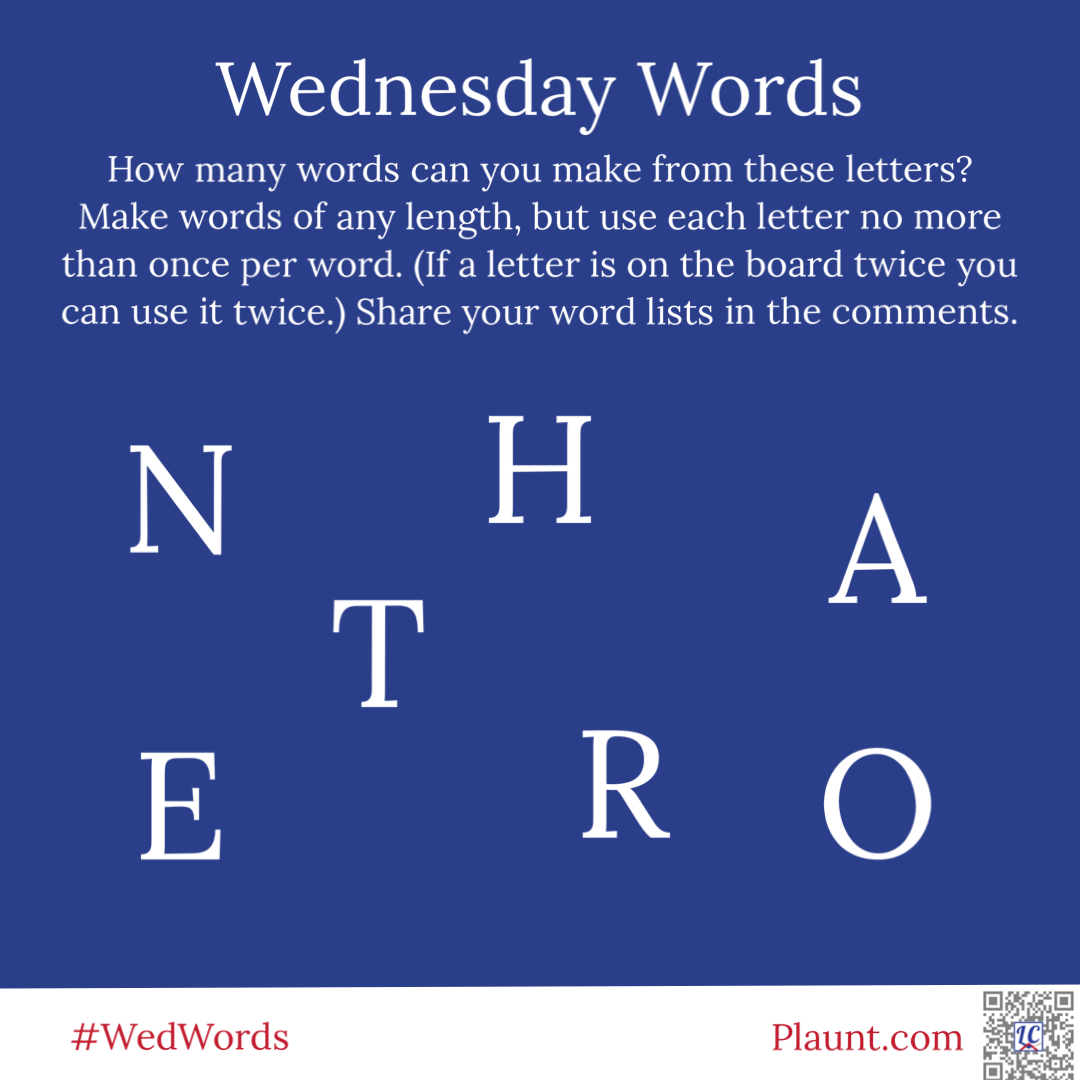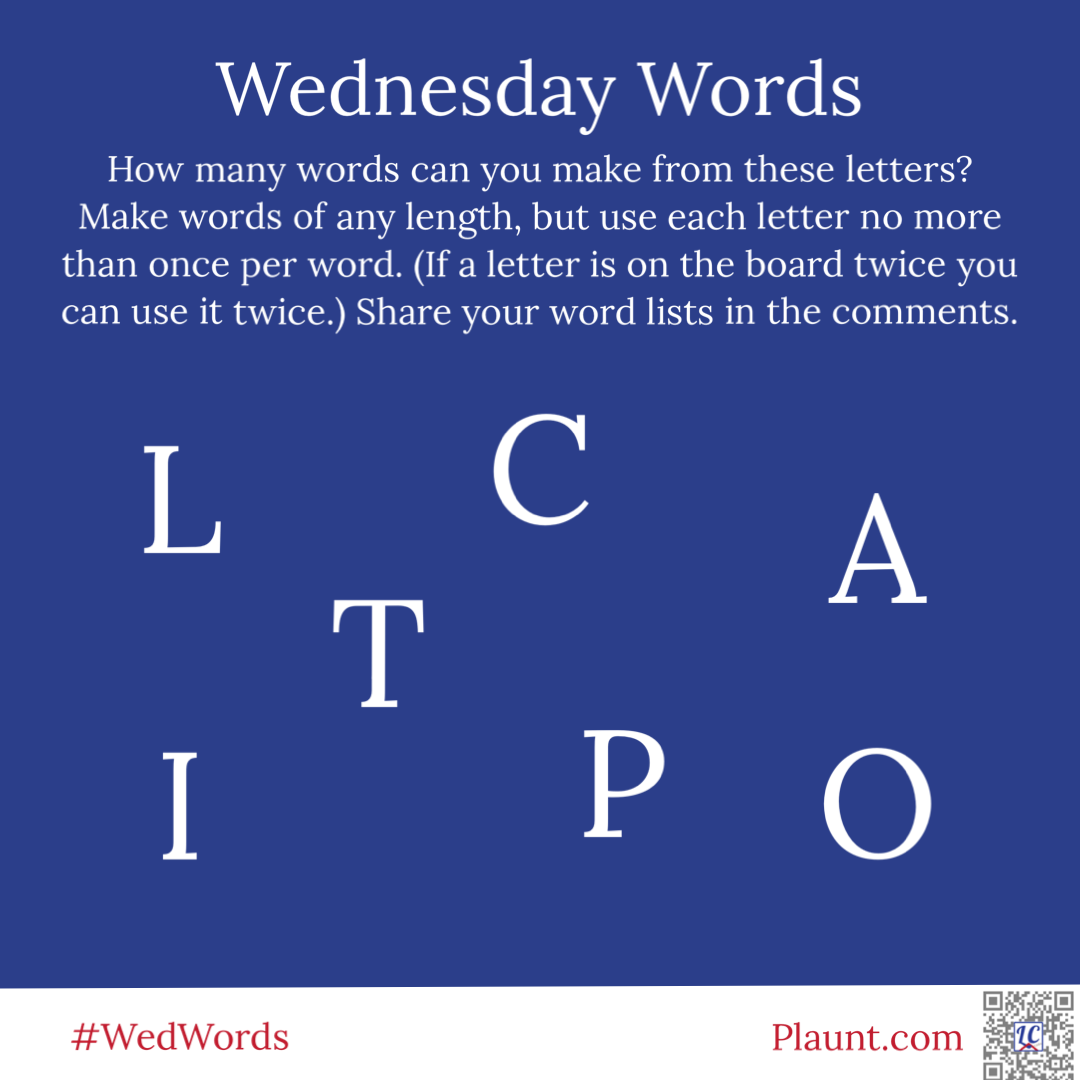Character is the ability to carry out a good resolution
~Cavett Robert
long after the excitement of the moment has passed.
Wednesday Word
How many words can you make from these letters? Make words of any length, but use each letter no more than once per word. (If a letter is on the board twice you can use it twice.) Share your word lists in the comments.

Tuesday Two
In two sentences tell me what you have learned about writing recently.
Monday Muddle: collected, collective
collected: (adjective) gathered together, composed, self-controlledUsed in the expression “calm, cool and collected”. collective: (noun) a group with a common interest or objective; (adjective) done or shared by people as a groupNOT used in the expression “calm, cool and collected”.
Language Laughs
Thursday Thought #JessDraus
We shouldn’t have to choose
~Jess Draus
between violation or violence.
Wednesday Words
How many words can you make from these letters? Make words of any length, but use each letter no more than once per word. (If a letter is on the board twice you can use it twice.) Share your word lists in the comments.

Tuesday Two
In two sentences tell me about your work in progress.
Monday Muddle: bear, bare
bear: (noun) a large animal; (verb) to carry; to withstand; to support; to provide; to give birthPart of the expression “bear with me”. bare: (adjective) minimal; plain; uncovered; unclothed; (verb) to uncover; to remove clothingNOT part of the expression “bear with me”. It has always been my advice that if …
